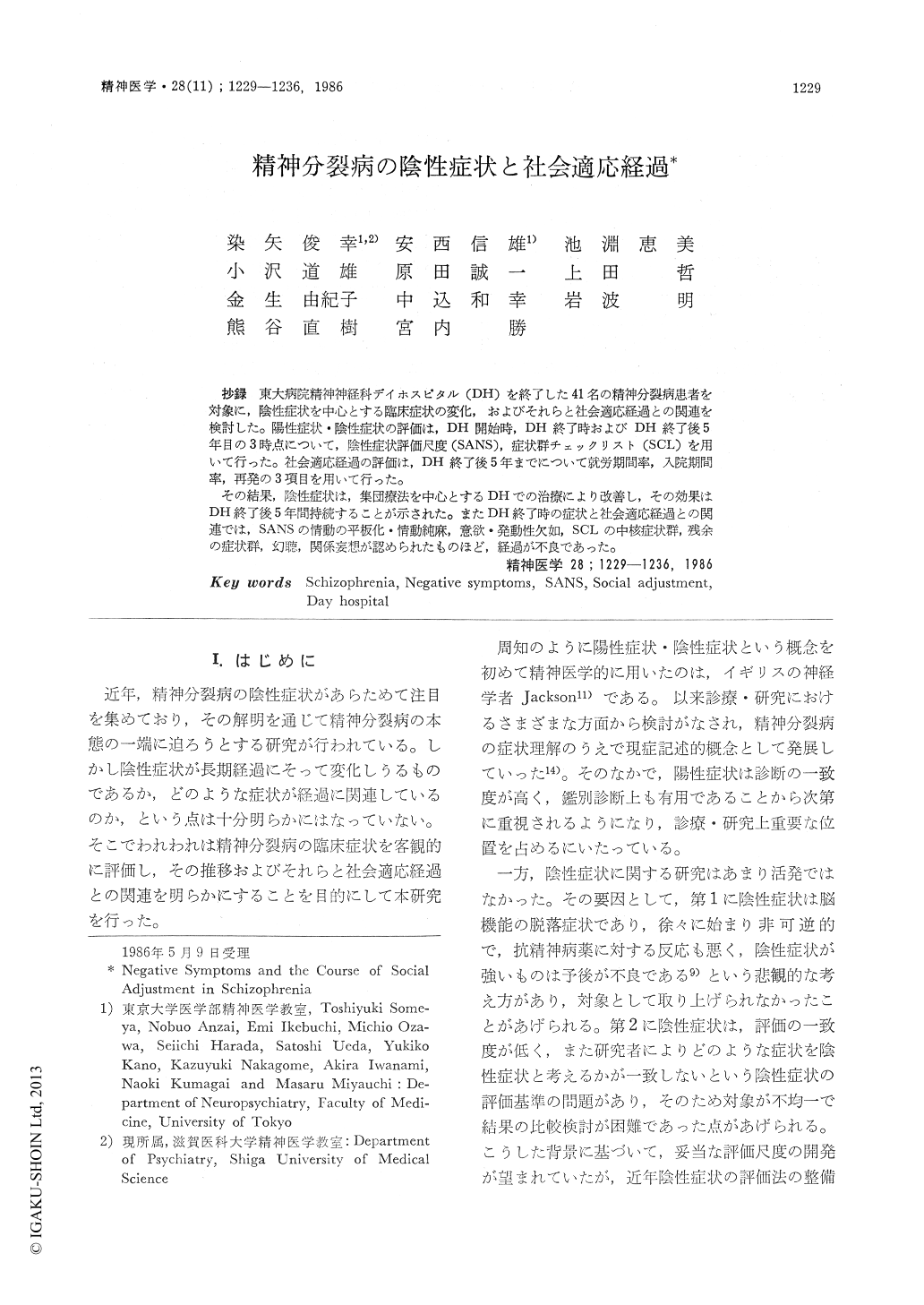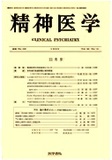Japanese
English
- 有料閲覧
- Abstract 文献概要
- 1ページ目 Look Inside
抄録 東大病院精神神経科デイホスピタル(DH)を終了した41名の精神分裂病患者を対象に,陰性症状を中心とする臨床症状の変化,およびそれらと社会適応経過との関連を検討した。陽性症状・陰性症状の評価は,DH開始時,DH終了時およびDH終了後5年目の3時点について,陰性症状評価尺度(SANS),症状群チェックリスト(SCL)を用いて行った。社会適応経過の評価は,DH終了後5年までについて就労期間率,入院期間率,再発の3項目を用いて行った。
その結果,陰性症状は,集団療法を中心とするDHでの治療により改善し,その効果はDH終了後5年間持続することが示された。またDH終了時の症状と社会適応経過との関連では,SANSの情動の平板化・情動純麻,意欲・発動性欠如,SCLの中核症状群,残余の症状群,幻聴,関係妄想が認められたものほど,経過が不良であった。
The purpose of this study was to investigate the longitudinal course of clinical symptoms of schizophrenia, especially of negative symptoms, and their relationship with the course of social adjustment. We studied fortyone young schizophrenic patients, who had been treated in the Day Hospital, Department of Neuropsychiatry, University of Tokyo. The patients were followed up for more than five years after the termination of the Day Hospital treatment.
Negative and positive symptoms were retrospectively assessed, using the Scale for the Assessment of Negative Symptoms (SANS) and the Syndrome Check List (SCL) on the following three occasions, 1) at the time of the admission to the Day Hospital treatment, 2) at the time of the termination of the Day Hospital treatment and 3) five years after the termination of the Day Hospital treatment. Social adjustment was reassessed every year during the five years following the termination of the Day Hospital treatment. The following three items were checked, viz. "relapse", the "rate of employment duration" and the "rate of hospitalization duration".
The result of statistical analysis revealed that negative symptoms were improved by the Day Hospital treatment, especially by group therapy, and the effect of this therapy remained fairly stable throughout the five years after the termination of the Day Hospital treatment. Negative symptoms, specifically "affective flattening or blunting" and "avolition and apathy", which were assessed by SANS at the termination of the Day Hospital treatment, were found to be effective prognostic signs in schizophrenic patients for predicting later poor social adjustment in terms of "relapse" and the "rate of employment duration". Contrary to the present hypothesis that positive symptoms seem to be invalid in predicting long-term outcomes, positive symptoms, specifically "nuclear syndrome", "residual syndrome", "auditory hallucinations" and "delusions of reference", which were assessed by SCL at the termination of the Day Hospital treatment, were found to be of value for predicting later poor social adjustment in terms of the "relapse" and "rate of employment duration". This finding suggests that long-lasting positive symptoms during the post acute-phase of schizophrenia were also important for assessing the prognosis.

Copyright © 1986, Igaku-Shoin Ltd. All rights reserved.


